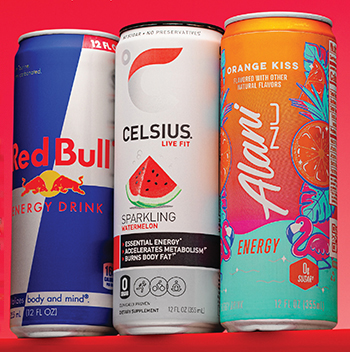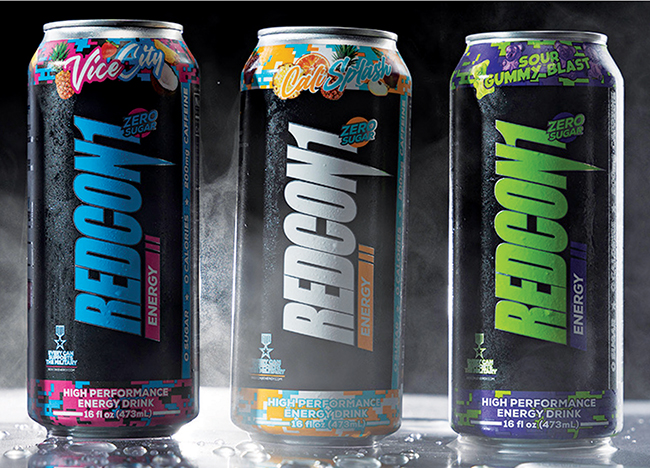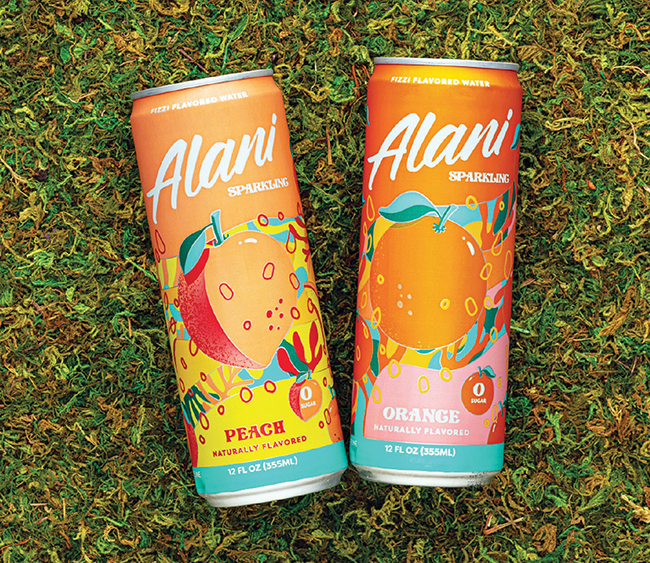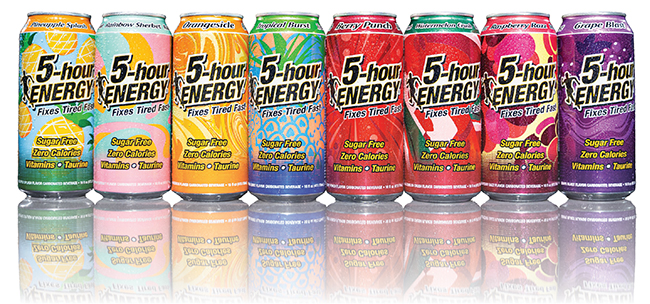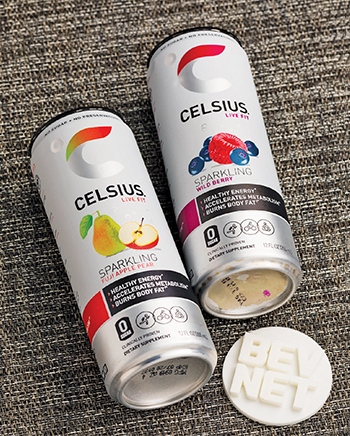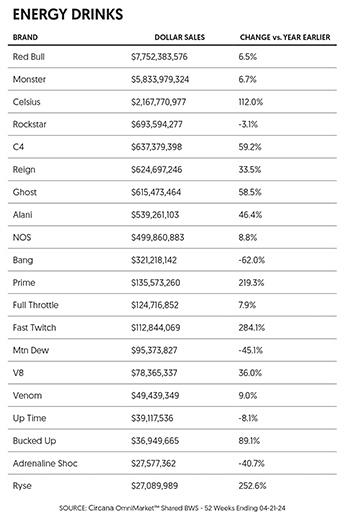All the Right Moves: Energy Drinks’ Delicate Distribution Dance
As the laws of physics tell us, energy can neither be created nor destroyed. As the beverage industry tells us, however, it can definitely be distributed.
Moving product is a critical piece of the business equation for drink manufacturers across all categories, but energy drinks have enjoyed (or suffered, depending on your perspective) a considerably more dynamic and dramatic saga in recent years as consolidation from the major strategics has reshaped the landscape.
For the small handful of brands at the top end of the $19 billion-and-growing space, rapidly climbing sales have helped land substantial distribution partnerships with the big strategics, with the two most powerful names, Coca-Cola and PepsiCo, having made their bets around Monster and Celsius/Rockstar, respectively. But as heavy hitters like Keurig Dr Pepper, Anheuser-Busch InBev and Molson Coors put their thumbs on the scale, those scales of mass distribution are tilting in their favor.
Yet as industry observers keenly know, challenges are often the source of opportunities for those who know how to find them. Energy is as in-demand as ever from consumers, and a new generation of brands has begun filling gaps in the market with more finely tuned RTDs; think G FUEL for gaming or Alani Nu for women, for example. That there’s ready availability of new, innovative brands is welcome news for independent distributors, but – having been burned by exits in the past, and now facing a new threat from direct shipments to large chains – many are wary of having the rug pulled out from underneath them yet again.
Against that backdrop, the stakes have been raised for all parties operating outside of the big-strategic bubble.
“That same [distributor] network that I use, that Celsius [had] used, that C4 and a lot of other brands have used, they’ve built a lot of these brands, and then [the brands] moved on,” said Gene Bukovi, head of beverages at Redcon1. “They’re a little fatigued.”
The Distribution Shuffle
Looking at the category growth leaders of the past half-decade, they all share similar origins within the sports nutrition and supplement space. And as those leaders have formed distribution pacts with powerful strategics like Coca-Cola (celebrating its tenth year with Monster in 2024) Pepsi (Celsius), Keurig Dr Pepper (C4) and Anheuser-Busch (GHOST), independent distributors have found a new crop of players eager to fill the gaps in their portfolios.
Gene Bukovi knows the landscape well: riding shotgun alongside bombastic CEO Jack Owoc, he helped turn Bang into a billion-dollar-plus brand in the 2010s through a national network of DSD partners. Now at the helm of Florida-based supplement platform Redcon1 as head of beverages, he’s taking that brand’s 3 oz. shots and 16 oz. energy drinks through those same distributors, but finding that scars and bruises from previous experiences are still there.
“My whole team’s pitch to distributors has really been that we’re going to stick with our distributor partners and work together, and we’re not going direct,” he explained, framing his approach as supporting “ground troops” rather than being “top heavy”.
Bukovi’s outlook is colored in part by his own, albeit brief, experience working with Pepsi at Bang, which accused the distributor of giving some of its facings to Pepsi’s lower-velocity portfolio brands like Rockstar. He acknowledged that the soda company has been a better fit with its new partner Celsius, but reaffirmed his position that DSDs need more support than they did in the days before COVID and that unless strategics grow the overall shelf space, they’ll still be reshuffling SKUs and choking off innovation.
“There’s trepidation from distributors,” said Aaron Singerman, Redcon1’s CEO and founder. “I think the initial probably five or six phone calls [to DSDs], every one of them I had to explain that we’re not looking to sell to somebody or something like that. If they’re gonna bet on a brand and they’re gonna help build it, they want it to stick around, which is understandable.”
An abrupt exit to a strategic – even if it’s contractually compensated – isn’t the only sword hovering at the neck of distributors: The danger of being sidestepped by brands choosing to go direct to certain retailers has come to the fore this year through the actions of PRIME and Alani Nu maker Congo Brands. The Kentucky-based company roused the ire of its DSD partners this spring by taking PRIME’s hydration beverages and Alani Nu’s energy drinks — generators of $504 million in sales, per NielsenIQ data — direct to Walmart and Target, with Kroger likely the next to come onboard its expanding program. Red Bull has also tightened its control over distribution by cutting out longtime partner Beverage Works in the highly lucrative New York market, a dismissal which the jilted party is fighting in court.
The good news for distributors is that consumers’ seemingly bottomless thirst for energy has stimulated the market further downstream. Along with Redcon1, independent energy brands that have benefitted from consolidation by the strategics include Bucked Up, the hunter and outdoorsman-friendly brand out of Utah, and another supplement-based startup, Ryse Fuel.
The former brand, named as a 2024 Insurgent Brand by consulting firm Bain & Company, generated over $33 million in dollar sales in the 52-week period ended March 26 (+100% YoY) via DSD partnerships with Hensley Beverage, Polar and others. Meanwhile, like other fitness-focused brands, Ryse Fuel has leveraged strong performances in nutrition channels (The Vitamin Shoppe) to make itself appealing to DSDs that may have lost key energy brands, a strategy which has yielded wins at Kroger and Qwik Trip.
Yet the ultra-high level of competition within energy means there’s dangerously little room for error. Despite backing from NASCAR champ Kyle Busch and having Suja co-founder Jeff Church at the helm, Rowdy Energy quietly folded in January after raising $13 million in 2021 from investors including CPG accelerator CircleUp and the Kraft Group, among others. Molson Coors’ splashy ZOA brand has struggled to find its rhythm, too. On the other side of the fence, energy upstarts like Lucky (formerly Lucky F*ck) have managed to win fresh venture capital even amidst a challenging fundraising climate. And despite a wobbly start, 5-Hour Energy has doubled-down on its commitment to becoming a player in 16 oz. cans with new flavors and designs.
In the grand scheme, Singerman noted, distributors simply need to have a reason to believe in emerging energy brands, or at least to have some guarantees – in the form of chain placements, preferably – against potential underperformance. For their part, brands are increasingly building general nutrition platforms around their energy products – tapping into areas like protein and hydration or formats like shots – in part to provide distributors with more product options for their retailers. But in those situations, cutting out DSDs from LTOs can be particularly jarring.
“We want to be able to provide [distributors[ a full portfolio of products that they can sell,” said Bugovi. “We’ll probably bring on partners and be a billion dollar organization, but we want to stick with this network. The plan is not to shift over to Coke. We see what happens with brands that go over there – they die.”
“The only downside that we also see is some of the DSDs are gun shy,” added Singerman. “It’s just taking a little longer for those same people to realize it’s gonna happen.”
Celsius Grows With Pepsi
While independents pursue distribution opportunities in the open market, much of the attention around strategic brands has centered on the prodigious growth of Celsius via its distribution pact with Pepsi, a relationship that has yielded tremendous success thus far and which is now looking closer at the longer-term.
This spring, in an amendment to its existing agreement, Pepsi introduced an incentive program to help drive sales, at the risk of some margin degradation. The move underlines the “great relationship” Celsius has with Pepsi, said chief commercial officer Tony Guilfoyle, and “further aligns our priorities and motivations.” It also heightened expectations for summer retail resets, which Guilfoyle predicted would be the “best in our company’s history.”
Part of that optimism comes from the fact that the full potential of the Celsius-Pepsi partnership has yet to be felt; 2024 is the first full year in which the energy drink maker is co-creating an annual operating plan with the soda giant, a project it should be able to devote more attention to following Gatorade’s pivot from DSD back on to the blue trucks. As noted by Jeffries analysts, with greater efficiency and less inventory to carry, Pepsi’s overall performance is likely to keep improving. Delivery time has been reduced from 14 to 7 days, while expanded windows for shelf resets means there’s more time to fill new space on the shelf.
Already, the gains are evident: in two years’ time, Celsius has captured 98% ACV with national coverage, particularly in independent convenience stores. More importantly, the brand’s channel spread is helping to redefine and broaden use occasions for the products themselves, as reflected in particular by its growth in food service. During the first quarter, volume in that channel increased 186% YoY, or around 12% of total sales to Pepsi in the period. Robust sales performance on Amazon and club retail (+36% YoY to $63 million in Q1) balance out the business.
“This is the first full year that we’re activating a co-created annual operating plan that will optimize our collaboration and in-store presence,” said Guilfoyle. “Great partners grow great brands.”


Receive your free magazine!
Join thousands of other food and beverage professionals who utilize BevNET Magazine to stay up-to-date on current trends and news within the food and beverage world.
Receive your free copy of the magazine 6x per year in digital or print and utilize insights on consumer behavior, brand growth, category volume, and trend forecasting.
Subscribe